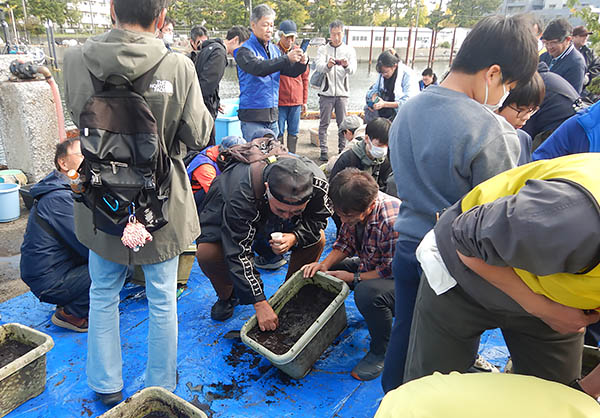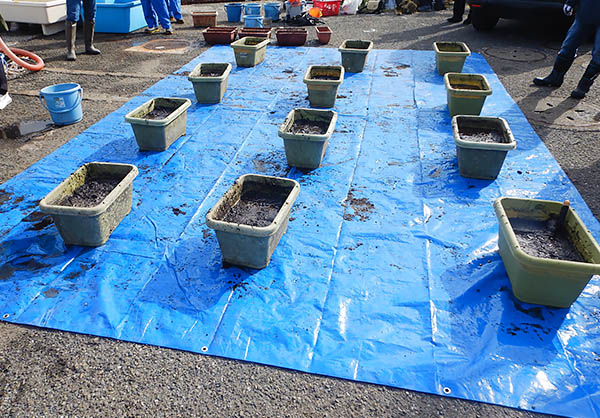IHI Yokohama Office Participates in Eelgrass Bed Restoration Activities
The IHI Yokohama Business Office, which faces the coast of Tokyo Bay, is participating in the eelgrass bed restoration activities being conducted by the Amamo Revival Collaboration in Kanazawa-Hakkei, Tokyo Bay Area*, along with neighboring companies.
Amamo, or eelgrass, is a seed plant that grows in the shallow sea areas and reproduces by extending its underground stems beneath the seabed. Because it provides hiding places for small fish, in Japanese it is sometimes known as "umi no yurikago," or "the sea's rocking cradle." Eelgrass contributes to biodiversity and to carbon fixation through photosynthesis.
The site of these eelgrass restoration activities, the coast of Yokohama's Kanazawa Ward, once had expansive eelgrass beds. However, due to urban development and port development, only a small amount of eelgrass still remains. The Amamo Revival Collaboration in Kanazawa-Hakkei, Tokyo Bay Area leads activities aimed at restoring these eelgrass beds. The IHI Yokohama Office is participating in these activities as a member of the Isogo Environmental Association, an environmental action group composed of IHI and five nearby companies.
- Members, such as NPOs and citizens' groups that work together to restore eelgrass beds
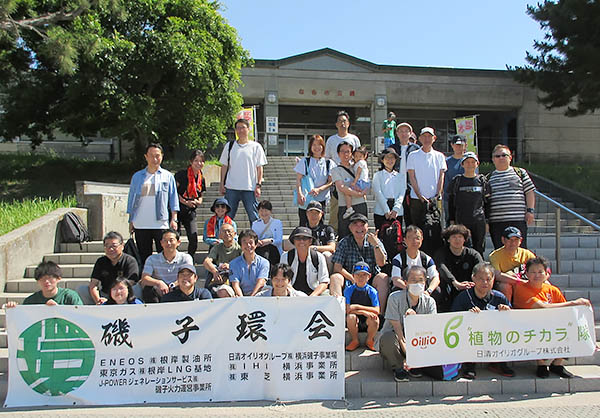
The eelgrass bed restoration activities consist of collecting eelgrass seeds, replanting them in the sea when they have grown to a large, healthy size, and expanding the eelgrass beds. Like terrestrial plants, eelgrass produces flowers and seeds. It takes roughly six months to grow eelgrass from seeds. Every spring, participants collect flowering branches (branches with seeds) of eelgrass that grows naturally along the coast of Kanazawa Ward. The seeds taken from these flowering branches are carefully grown in water tanks until fall, when they have grown large enough to be replanted in the sea.
This year, seeds from the flowering branches were collected on June 8. 11 IHI employees took part in the activity, going into the shallows to gather seeds from naturally growing eelgrass.
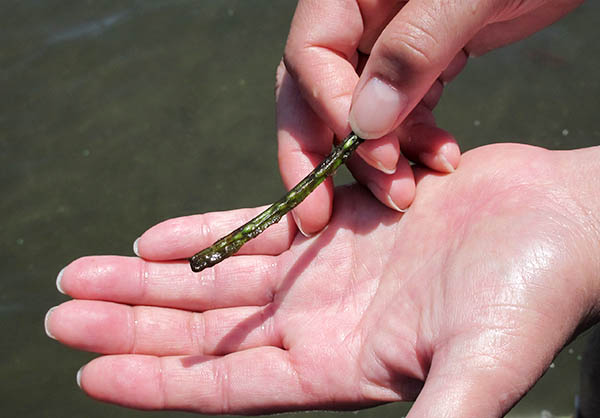
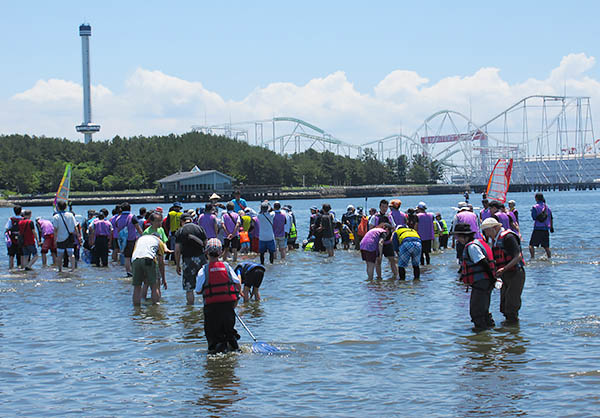
On November 9, the collected eelgrass seeds were planted in twelve planters that will serve as their nursery beds. Five IHI employees took part in the planting, working alongside people from neighboring companies and local elementary school students. When the water temperature drops in fall, the eelgrass begins sprouting, and it grows healthily, bathed in sunlight. These seedlings, carefully grown from seeds, will be transplanted back into the sea along the coast of Kanazawa Ward in spring.
Employees who took part in the activities asked about the timing of the replanting of the new eelgrass in the sea and they are looking forward to taking part in the spring replanting.
The IHI Group will continue to contribute to biodiversity through environmental conservation activities carried out in concert with local companies and communities.
